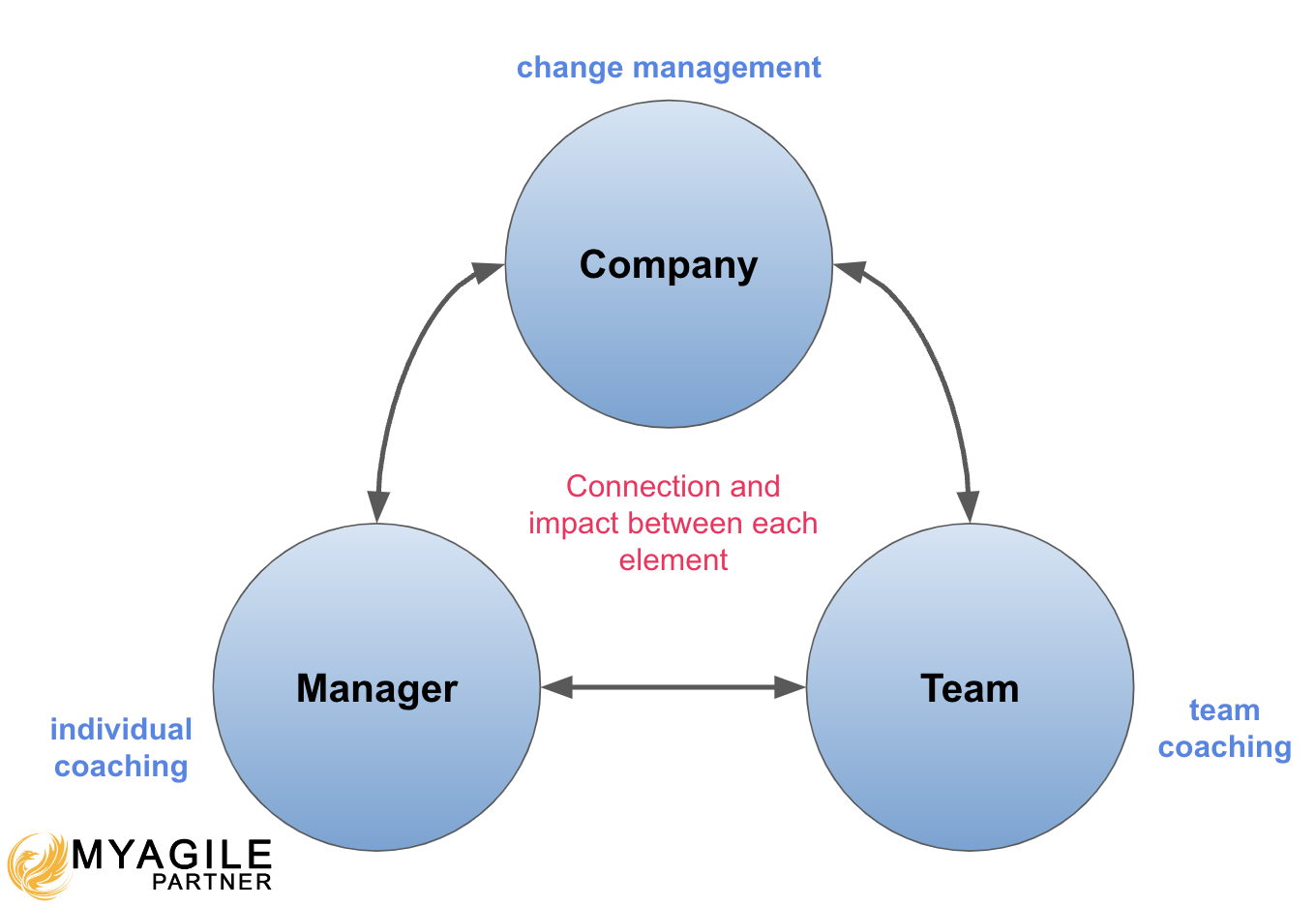
Coaching with a Systemic Approach – Systemic coaching can be highly beneficial in guiding a transformation such as an agile transformation. Every action can have an impact that needs to be considered.
In this article, we will explore the specifics of systemic coaching, shedding light on its key aspects and explaining why it is increasingly embraced by professionals.
An Approach Centered on Relational Context
Systemic coaching focuses on a person’s interactions with the various systems they belong to. Instead of fixating on the isolated individual, it examines the relational context in which that person operates. Rather than adhering to a simple linear causality logic (“A did this, so B reacted that way”), it adopts a circular perspective of interactions. This perspective allows for an understanding of the dynamics of co-responsibility and co-construction that underlie each event.

The goal is not to fundamentally change a person (B) but to alter their way of interacting with another (A) in a given context to avoid unwanted reactions. Thus, systemic coaching does not seek to typify individuals but to comprehend how the context influences their behavior.
A Strategic Approach to Problem Solving
Systemic coaches aim to move away from the linear causality logic and instead place the issue in a comprehensive and interactive perspective. By observing sequences of interactions among individuals and considering the specific context, coaches can define a more effective intervention strategy. This active and direct approach involves asking questions, reframing, and assigning tasks to make progress toward the objective.
A Minimalistic and Paradox-Centered Approach
Systemic coaching is minimalist, striving to bring about significant change by intervening in the system’s element furthest from equilibrium (homeostasis). Rather than overloading the system, coaches identify the element that is the “easiest” to move to generate global change.
Furthermore, it relies on a paradoxical intervention that involves halting attempts at solutions that do not work. Coaches encourage clients to consider new approaches by modifying their behavior or way of thinking.
A Fundamentally Constructivist Approach
According to constructivist theory, there are two types of reality:
- First-order reality (indisputable facts).
- Second-order reality (our interpretation of first-order reality, based on our experiences and learning).
Systemic coaching believes that individuals construct their reality and can change it if it does not serve them well. Thus, coaches seek to understand how clients construct their reality and assess whether it facilitates or hinders progress toward their goals. By altering this reality, clients can mobilize their resources more effectively.
Conclusion – Coaching with a Systemic Approach
Systemic coaching is a potent strategy for problem-solving and personal growth. It focuses on interactions, adopts a comprehensive perspective, promotes minimalist change, and is grounded in a constructivist view of reality.
By embracing this approach, coaches can help their clients overcome obstacles and achieve their objectives more effectively.




Be the first to comment